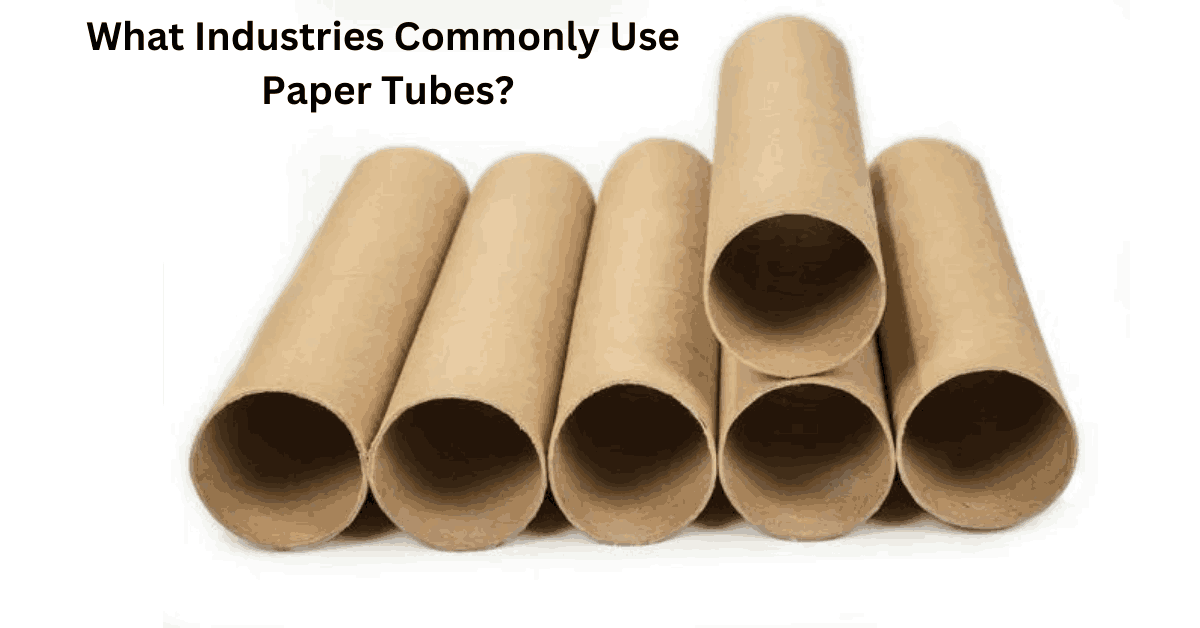Paper tubes can be customized with sturdy, weather-resistant, and non-corrosive materials, making them versatile for various applications.
You can use an industrial paper tube in packaging and the food and beverage sector. Paper tubes can help companies wind long cables and yarns and protect products from harsh weather elements. You can apply paper tubes in the following industries:
Packaging Industry
Paper tube packaging can protect consumer products from damage and defects when transporting them to the consumer. Industrial paper tube packaging can be made from strong, lightweight materials, making transportation easier and more efficient.
Companies may use paper tubes when packing products such as cosmetics, clothes, and jewelry. You can use paper tubes to package and transport specialized equipment such as medical equipment and telescopes.
These packages can be customized to fit the exact dimensions of products, cushioning them from damage during long-distance shipments. Strong paper tubes from reputable vendors can help protect products from wind, rain, and sunlight.
Putting paper tube spacers inside packages makes it possible to prevent packed products from moving and lowers the risk of damage during transit. You can install paper tube spacers to position and safeguard automotive wheel hubs in packages during shipping.
Food and Beverage Industry
The food and beverage industry can use paper tubes to pack products for end-consumers safely. Food and beverage companies can use cardboard paper tubes to store frozen foods, dry goods, liquids, and fast food.
You can coat the inner sides of paper tubes with non-corrosive paper or aluminum. This additional layer helps protect foods and beverages from cross-contamination.
Electrical Industry
When installing electrical equipment, you can transform paper tubes into spools and reels for handling materials. Spools and reels help with the production, shipping, storage, and end use of wires and cables used in the electrical sector.
Fixed reels can wind and unwind power cables to aid in installing an electrical system. Parallel reels, which spool many cables on the master reel, can enable electricians to transport one reel with different cable lengths to the installation site.
Construction Industry
The construction industry can use paper tubes to form concrete foundation columns. These tubes can have a slip coating to prevent stress while workers continue to build their structures with a solid foundation.
You can customize tube columns to form solid pillars to match your load specifications. This can enhance your structure’s capacity to support heavy loads.
Consider using paper tubes to make void formers that help support the foundations of buildings during construction. You can apply void formers as barriers from clay heaves where soil around your foundation begins to push against it to help prevent the collapse of the structure.
Void formers can occupy gaps between the soil and concrete to prevent hydrostatic pressure.
Insulation Materials Industry
The fibrous structure of paper tubes helps the natural thermal insulating properties for dampening vibrations. Consider using paper tubes when you need to block out outside noise.
You can use insulating paper tubes as electrical insulators when storing and transporting electronics like flashlights, batteries, and motors.
Contact an Industrial Paper Tube Provider Today
Industries commonly using paper tubes include the packaging, construction, electrical, insulation materials, and the food and beverage sectors. These paper tubes comprise strong and light material suitable for packaging products for long-distance shipping.
You can effectively use paper tubes to transport specialized products such as medical equipment. Paper tubes can stabilize your structure by supporting your building foundation in construction.
Void formers made from paper tubes can help you avoid structural damage to your building. Contact a reputable paper tube provider today for efficient industrial operations.







